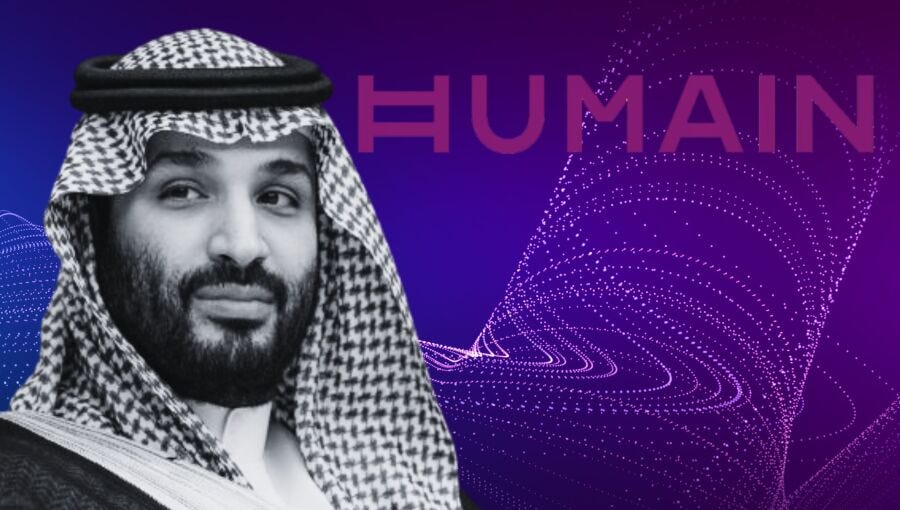Sakana’s CTMs Introduce Time-Aware Reasoning
Why time-based reasoning might be the missing link in AGI.
Good morning AI entrepreneurs & enthusiasts,
AI just crossed a new threshold—Sakana's models don't just process data, they reason over time. Step by step, tick by tick, they think more like humans than any system we've seen.
These Continuous Thought Machines (CTMs) are a glimpse into what comes after prompt-response AI: adaptable, introspective systems that evolve as they solve. Welcome to the age of temporal cognition.
IN TODAY’S AI NEWS:
Sakana AI's CTMs Bring Time-Aware Reasoning
OpenAI unveils HealthBench for healthcare AI evaluation
AI predicts cancer outcomes from facial images
Saudi Arabia’s Humain Project
Top Tools & Quick News
Sakana AI's CTMs Bring Time-Aware Reasoning
The News: Sakana AI introduced Continuous Thought Machines (CTMs), a new architecture that mimics human reasoning by processing information over time rather than generating immediate, static outputs.
The details:
Unlike traditional neural nets, CTMs evolve their internal state across multiple reasoning steps, called "ticks."
CTMs coordinate artificial neuron firing, enabling internal alignment and attention without relying solely on external prompts.
They dynamically allocate effort—spending more time on complex tasks and less on simpler ones.
In maze-solving tasks, CTMs showed intuitive, interpretable exploration behavior before finalizing an output.
Why it matters: CTMs represent a paradigm shift in how machines think—moving beyond static outputs to dynamic, evolving cognition. By mirroring biological principles like timing and neural synchrony, they introduce a more fluid, introspective form of AI reasoning. This innovation opens the door to systems that don’t just respond but reflect, adapt, and learn over time—laying crucial groundwork for achieving truly general, human-aligned intelligence.
OpenAI’s HealthBench is redefining AI in medicine
The News: OpenAI launched HealthBench — a comprehensive, open-source benchmark created in collaboration with 262 physicians from 60 countries to evaluate AI's performance in realistic medical dialogues across 26 specialties.
The details:
Tests models on emergency care, global health, chronic diseases, and more, using 5,000 real-world multi-turn conversations.
Physician-designed rubrics include 48,562 clinical criteria weighted by importance, evaluating accuracy, empathy, completeness, and clarity.
Uses GPT-4.1 as an evaluator to ensure scalable, consistent grading that matches or exceeds average physician performance.
Benchmark data, rubrics, and scores are fully open-source, empowering the research community to compare, refine, and improve models.
Covers 49 languages and 26 specialties, making it the most globally representative benchmark of its kind.
Why it matters: Unlike static, exam-style evaluations, HealthBench replicates the nuance of actual clinical conversations. By incorporating empathy, clarity, and context — not just factual accuracy — into its grading system, it sets a higher bar for AI safety and bedside relevance. It’s a transparent, physician-validated framework for ensuring AI is ready for deployment in real medical settings.
AI can predict cancer survival from facial images
The News: Mass General Brigham researchers unveiled FaceAge, an AI model trained to estimate biological age from facial images — enabling more accurate cancer survival predictions.
The details:
FaceAge was trained on 58,851 facial images of healthy individuals to detect subtle aging biomarkers.
When tested on 6,196 cancer patients, FaceAge revealed they looked 4.8–5 years older biologically, with worse survival rates tied to older-looking faces.
Clinicians using FaceAge risk scores alongside medical data improved 6-month survival prediction accuracy from AUC 0.74 to 0.80.
Predictions correlated with molecular aging markers, reinforcing the biological relevance of facial analysis.
Why it matters: By quantifying physicians’ intuition that “older-looking” patients often fare worse, FaceAge bridges the gap between subjective observation and objective data. This non-invasive biomarker could help personalize treatment strategies across oncology, though researchers caution about potential bias and stress the need for broader validation.
Saudi Arabia’s Humain Project
The News: Saudi Arabia has launched Humain, a state-backed artificial intelligence company under the Public Investment Fund (PIF), as a central pillar of its strategy to become the Middle East’s—and a global—AI hub. Chaired by Crown Prince Mohammed bin Salman, Humain is designed to lead the kingdom’s AI development and investment.
The details:
A flagship project is the creation of a powerful Arabic large language model tailored to regional users.
Backed by PIF’s ~$940B in assets, Saudi Arabia projects its data center market will triple by 2030.
Collaborations include Groq, Cerebras, and Aramco Digital to build the world’s largest AI inference data center.
Launched during the Saudi-US Investment Forum, attended by top global tech leaders.
The initiative supports Vision 2030’s goals to diversify the economy and lead in technology.
Why it matters: Humain reflects Saudi Arabia’s calculated push to become a top global AI player. With deep financial reserves, strategic positioning across continents, and aggressive infrastructure investments, the kingdom is leveraging AI to fuel national transformation and claim a central role in the future digital economy.
Top Tools
🤖 HunyuanCustom – Multimodal video generation with character consistency
📋 Granola iOS – A meeting-friendly AI notepad
🧠 Deep Research – Connect GitHub to OpenAI’s agent
🦌 Deer Flow – ByteDance’s research platform goes open-source
Quick News
Google DeepMind launched the AI Futures Fund for early-stage startups to support innovation in foundational and applied AI.
SoftBank's $100B Stargate commitment may stall amid tariff concerns and regulatory uncertainty.
Perplexity aims to raise $500M, pushing its valuation to $14B as it competes in the AI search space.
LegoGPT from Carnegie Mellon generates stable LEGO builds from text, merging generative AI with creative design.
Saudi Arabia's new Humain project aims to become the Middle East’s premier AI hub.
The U.S. FDA will deploy AI agency-wide by June 2025, accelerating scientific review workflows.
Thanks for reading this far! Stay ahead of the curve with my daily AI newsletter—bringing you the latest in AI news, innovation, and leadership every single day, 365 days a year. See you in the next edition!






